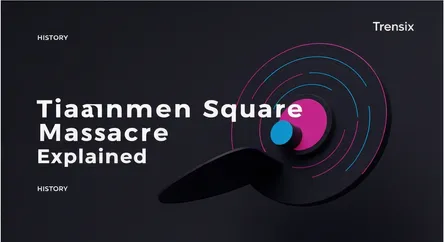History
Tiananmen Square Massacre Explained

An overview of the 1989 Tiananmen Square protests, the Chinese government's violent crackdown, and its lasting impact on China and the world.
What is it?
The Tiananmen Square Massacre was a violent crackdown by the Chinese government against pro-democracy demonstrators in Beijing on June 3-4, 1989. The protests were initially led by university students mourning the death of the pro-reform Communist Party leader Hu Yaobang in April 1989. The movement grew over several weeks, attracting up to a million people who gathered in Tiananmen Square to protest against government corruption and call for democratic reforms, freedom of the press, and freedom of speech. After weeks of demonstrations and failed negotiations, the Chinese government declared martial law and deployed the military to clear the square. Troops used assault rifles and tanks on the unarmed civilians, resulting in a significant death toll estimated to be from several hundred to several thousand.
Why is it trending?
The Tiananmen Square Massacre remains a highly sensitive and censored topic in China, yet it consistently resurfaces in global discussions, especially around its anniversary. International attention is often renewed by the efforts of human rights activists and organizations who refuse to let the event be forgotten. The stark contrast between China's growing economic power and its continued political repression keeps the memory of the massacre relevant. The iconic "Tank Man" photograph, showing a lone protestor standing in front of a column of tanks, became a lasting symbol of defiance against authoritarianism and continues to be a powerful image in pro-democracy movements worldwide.
How does it affect people?
The massacre had profound and lasting effects. Internationally, it led to widespread condemnation, with many Western governments imposing economic sanctions and arms embargoes on China. Domestically, the Chinese government launched a campaign of mass arrests, executions, and increased surveillance to suppress any remaining dissent, effectively ending the burgeoning democracy movement. The event is heavily censored within China to this day, with the government actively blocking internet searches and public discussion about it. This has created a generation with little to no knowledge of the event, while for others, it remains a deep political scar and a symbol of the government's violent suppression of political freedom.